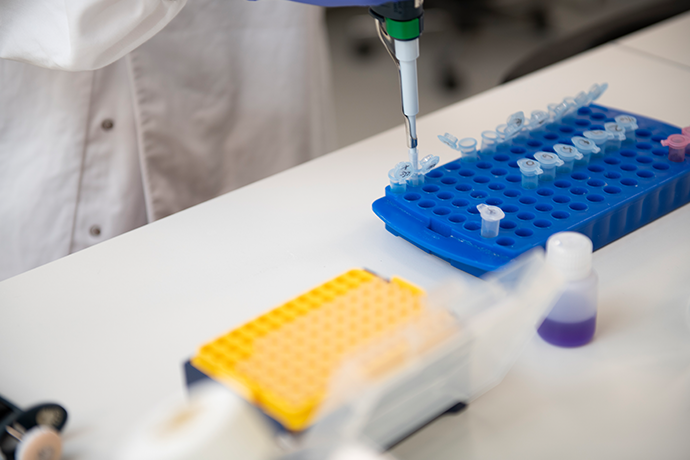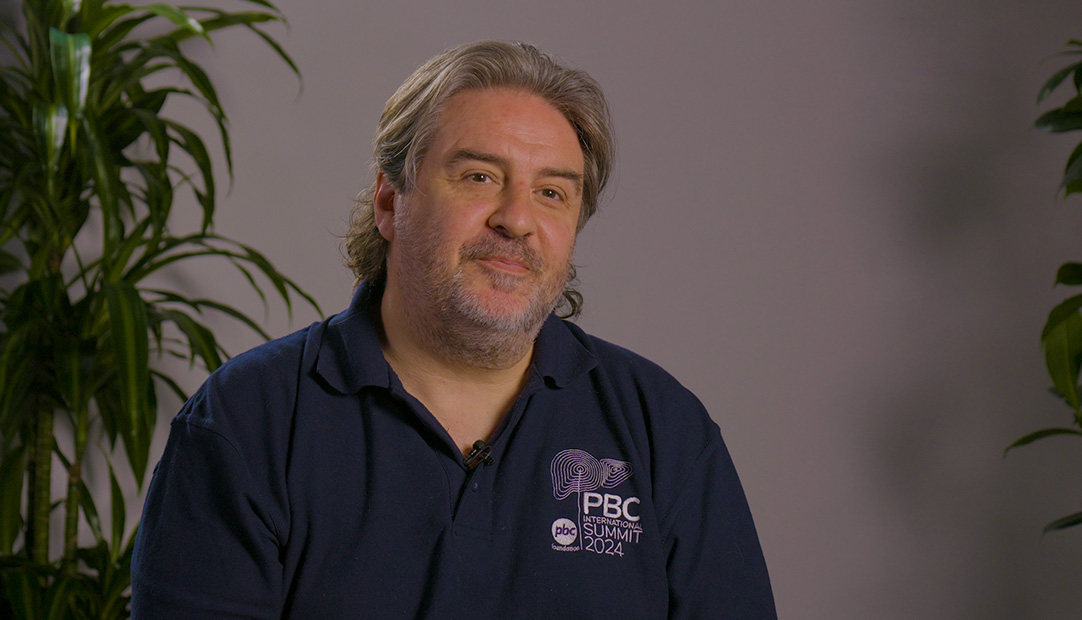
Our commitment to rare disease
Ninety-four percent of rare medical conditions still have no treatment. Today our Rare Disease teams are more committed than ever to changing that. We leverage scientific expertise, our global presence, and a robust external innovation strategy, plus first-in-the-world clinical trials to develop life-changing rare disease therapeutics.

Listening to people living with rare diseases
With unwavering focus on patient care, we strive to understand the challenges faced by those living with rare diseases. We learn from their experiences and integrate their insights into our efforts throughout the development process. As a result, we are gaining momentum toward finding treatments for rare diseases including musculoskeletal (bone), metabolic, endocrine, gastrointestinal (liver) and neuromuscular disorders.
Learn moreChallenging treatment paradigms
In 2023, Ipsen will be reporting on a Phase III clinical trial with critical implications for treating an autoimmune liver disease, Primary Biliary Cholangitis (PBC), and its debilitating symptoms.

Unique challenges require unique solutions
In 2023, we further strengthened our Rare Disease portfolio with promising treatments and investigational assets for pediatric and adult rare liver diseases.

An unwavering fight to meet patient needs
94% of rare diseases still lack approved treatments.

Rare but not alone
350-400 million people are impacted by one of 7,000 rare diseases globally.

Innovating for patients with rare diseases
The rare disease clinical pipeline has more than doubled since 2020.
Continuous pioneering in rare disease
A core part of our strategy, Ipsen has focused on developing transformational treatments for rare diseases for many years.
Bone disorders
FOP causes permanent and continuous abnormal new bone formation in soft and connective tissues, like muscles, tendons and ligaments, a process known as heterotopic ossification (HO). It is an ultra-rare genetic disorder, characterized by inflammatory flare-ups that begin in childhood HO is irreversible and leads to severe functional limitations in mobility, progressive and cumulative disability, and shortened life expectancy. On average, patients are diagnosed at the age of 5, and their median life expectancy is 56. Around 900 people worldwide are currently living with an FOP diagnosis. Ipsen is harnessing novel mechanisms of action through the development of two investigational assets to bring potentially transformative treatments to those living with FOP.
Growth disorders
Acromegaly is a rare disorder caused by a benign (noncancerous) tumor of the pituitary gland, called an adenoma, that promotes too much growth hormone, or GH, to be released into the bloodstream. As a consequence, the body makes more of another hormone, insulin-like growth factor 1 (IGF-1).
Normally, IGF-1 works with GH to help control growth of many tissues in the body. With too much IGF-1 and GH, the body can undergo abnormal growth of bones, cartilage and other body tissues. While the more outward signs are enlarged hands, feet and face, more serious problems may also develop.
Pediatric Growth Hormone Deficiency (PGHD) and Adult-onset Adult Growth Hormone Deficiency (AGHD) occur when a person is unable to produce enough growth hormone (GH), or use it effectively. GH plays a critical role in helping bodies grow and develop, including improving muscle metabolism, growing bones, and breaking down fats. When levels of GH are too low, there may be an impact on growth and bodily functions.
PGHD may be present at birth or develop at any time during childhood or adolescence. Both can be caused by:
- A tumor in and around the pituitary gland
- Damage or an abnormality in the hypothalamus
- Damage to the pituitary by infection, blood vessel disease, severe head injury, or radiation treatment.
Damage to the pituitary gland may affect the production of one or more pituitary hormones, including GH.
Turner Syndrome (TS) is a genetic condition that occurs when one of a girl’s two X chromosomes is absent or incomplete. The most common feature of TS – affecting nearly all girls with the condition – is short stature. This is because the missing or incomplete X chromosome contains a gene that helps girls grow to a normal height. From birth through their teen years, girls with TS grow more slowly than unaffected children. The average adult height of women with TS is about 4’8”, while unaffected women average about 5’4”.
Chronic Kidney Disease (CKD) is a rare disease that causes loss of kidney function over a period of months or years. Most young people with CKD produce as much growth hormone (GH) as anyone their age, but their kidneys do not filter waste from their blood as well as they should. Because so much waste is trapped in their blood, their bodies cannot use GH effectively. Typically, GH signals insulin-like growth factor (IGF-1) to travel to muscles, organs and bones, instructing the bones to grow and helping improve muscle metabolism. CKD causes GH and IGF to not connect properly. This can lead to slowed or stopped growth, as well as improper development of muscles, organs and bones.
Severe Primary Insulin-Like Growth Factor Deficiency (SPIGFD) occurs when children lack insulin-like growth factor 1 (IGF-1), a naturally occurring hormone that is vital in promoting growth. If IGF-1 levels are very low, but growth hormone levels are normal or even elevated, this can cause children to be shorter than almost all others of the same age and gender.
Central precocious puberty (CPP) occurs when a child develops into a young adult at an unexpectedly early age because their growth and sex hormone glands begin to function early. CPP can be caused by tumors in the central nervous system (CNS) and other CNS disorders. However, a larger number of CPP cases are of unknown origin, especially in females; research is beginning to identify rare genetic causes for some cases.
Rare liver diseases
PFIC is a rare inherited condition in which children are unable to drain bile from the liver even though the large bile ducts are open (cholestasis). As a result, bile acid builds up in liver cells causing liver disease and symptoms. It is estimated that PFIC occurs in 1 in 100,000 live births. The most debilitating symptom of PFIC is pruritus (itching), which may be so severe that it leads to skin mutilation, loss of sleep, irritability, poor attention and impaired school performance. Up to 80% of patients suffer from severe pruritus.

Ipsen rare disease clinical trials
We are constantly striving to bring new treatments to the clinical trial stage to meet patients’ unmet medical needs.
Learn more
Our pipeline
Collaborating with like-minded partners, we are focused on improving the lives of patients and their caregivers. Our teams have unrelenting energy to deliver the best possible treatment options to patients who need them most.
Learn more








